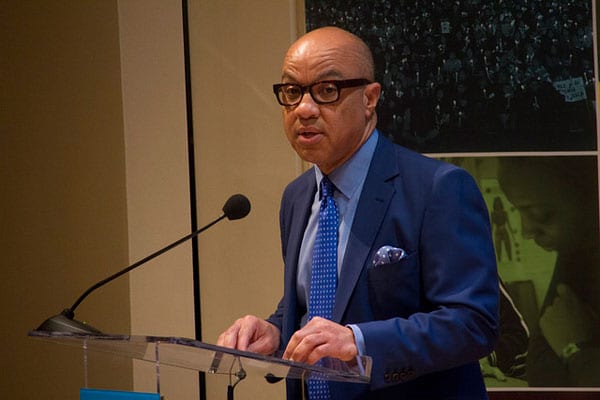
January 9, 2019; Equals Change (Ford Foundation)
Darren Walker, the president of the Ford Foundation, sometimes hits it out of the park in his public letters. So it is with the one he sent yesterday. While expressing faith in hope and a collective longing for shared peace and prosperity, he succinctly names the problem that challenges us all.
Millions of people feel frustrated with, and excluded by, an out-of-balance global economic system they are decreasingly willing to tolerate. In the United States and globally, we see the evidence and urgency mounting: Grassroots movements objecting to fundamental inequalities in our society are mobilizing, calling out for fairness and justice. They are naming causes of our current plight—among them, global capitalism that produces outsize wealth for owners and increased insecurity for workers; authoritarian leaders who foment division, discord, and dysfunction; fast-moving technological innovation, with consequences citizens are only now beginning to understand; and the long-standing evils of racism, classism, ableism, homophobia, and patriarchy. And although this is our society’s truth, it—like all truth—is under constant assault as the fidelity of facts, and our faith in them, is undermined.
Make no mistake, the exploitation of our democratic-capitalist system is intentional. Too often, the powerful and privileged who might stem the callousness and corruption seem largely to ignore it, avoid it, minimize it or, worst of all, maximize it for their own gain.
Sign up for our free newsletters
Subscribe to NPQ's newsletters to have our top stories delivered directly to your inbox.
By signing up, you agree to our privacy policy and terms of use, and to receive messages from NPQ and our partners.
He goes on to own that philanthropy is part and parcel of that system, naming some of the most substantive critiques of the last year, critiques that “pointed to the ways philanthropy replicates the worst dynamics and inequalities of our broader society.” Among those he names are Edgar Villanueva’s Decolonizing Wealth. Our favorite quote from Villanueva is “Philanthropy, honey, it’s time for an intervention.”
And then he gets to the point, one we will soon come back to in an article about Ford’s BUILD program. “Placing meaningful resources in the hands of those closest to the problems, backing their visionary efforts over time, listening and learning at every step of the journey—this is the philanthropy we need today.” He later returns to this idea:
We must trust those we fund, and fund them adequately to do what they believe is best, not what we think is best. This means putting ourselves in the shoes of prospective grantees and communities, treating them like partners rather than contractors, and entrusting organizations with long-term general support funding and project grants that provide adequate overhead. It means acknowledging the power imbalance that often makes our grantees reluctant to engage honestly and authentically.
We end where Walker starts, with a quote of Maya Angelou. He writes, “With the pause in our individual pursuits and the joy of shared celebration, with the retrenchment of the night and the rewinding of the calendar, there visits, as Angelou wrote, ‘a halting of hate time.’ In such a moment, ‘We, Baptist and Buddhist, Methodist and Muslim…We, the Jew and the Jainist, the Catholic and the Confucian…We shout with glorious tongues at the coming of hope. All the earth’s tribes loosen their voices to celebrate the promise of peace.’”—Ruth McCambridge













